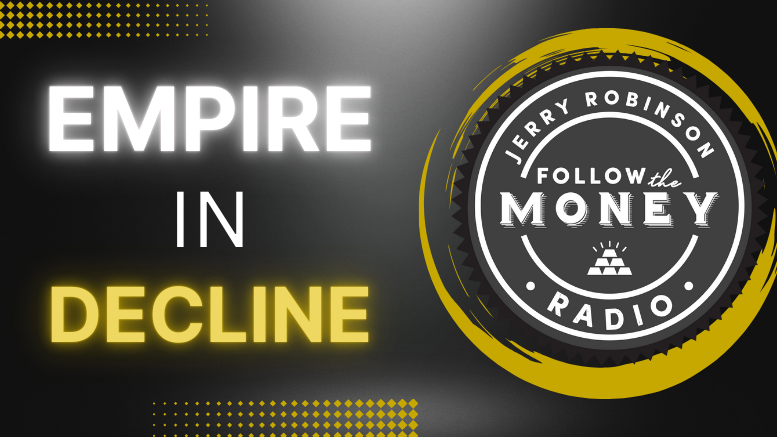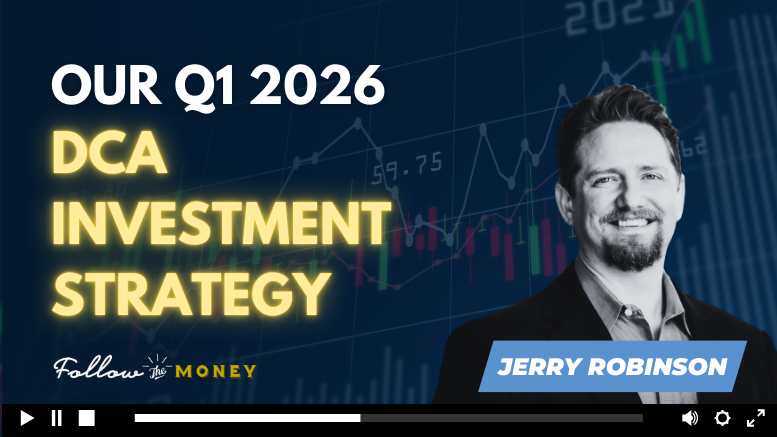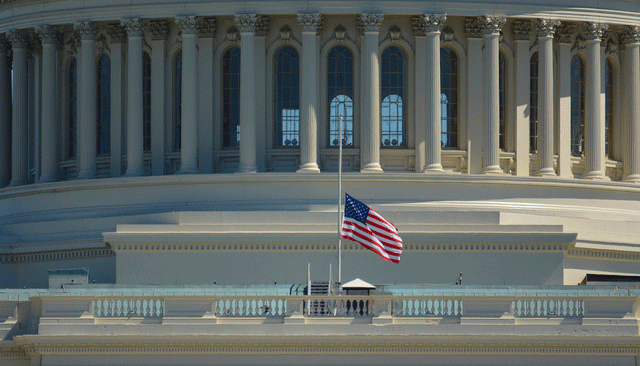
Those who continue to believe in the perpetual resilience of the American empire must face facts. And facts are stubborn things.
by Jerry Robinson
Since 1945, America has been the world’s supreme political and economic power. Throughout the second half of the twentieth century, the U.S. implemented its domestic and foreign policies with little regard for other countries. In our vast power, none dared to directly challenge America. Today, those days are nearing their end as the age of American hegemony slips into its twilight years.
For far too long, the American people have operated under the assumption that the economic good times would never come to an end. The reality, however, is that this assumption is nothing more than a manufactured illusion that somehow still holds our nation spellbound.
The great noise created from America’s long economic boom has fully awakened a host of emerging nations. As technological advances have leveled the global economic playing field, many of these emerging nations are now eager — and, more importantly, able — to walk the path of mass consumption, Western-style. Ironically, it is not just America’s own overconsumption that will bring it to its knees, economically. America’s economic failure will also be deeply aggravated by the attempts of emerging nations to emulate the consumption patterns of the West. We are living at the end of an empire. Accordingly, America will be forced to watch from afar as more nimble nations rise in economic dominance. These nations will rise unfettered by the crushing weight of unpayable debts, unsustainable monetary policies, and an entitlement-minded population.
Those who continue to believe in the perpetual resilience of the American empire must face facts. And facts are stubborn things.
- America is waging a trillion dollar global war on “terror” with virtually no end in sight.
- America has a weakening currency with no clear strategy on how to revive it.
- America’s debt-based monetary system requires exponential growth, debt, and production in order to expand. This is clearly unsustainable.
- America’s massive consumer debt levels are placing heavy constraints on the general economy.
- America is faced with trillions of dollars in government debts — growing by the millions every single minute — that can never be repaid without completely debauching its currency, wiping out vital social safety nets, or taxing the American population into oblivion.
Like a race car heading straight toward a brick wall with the driver asleep at the wheel, the collapse of American hegemony will not be a pretty sight.
What Goes Up, Must Come Down
Scottish historian Alexander Tyler documented the typical life cycle of a democracy:
“A democracy cannot exist as a permanent form of government. It can only exist until the voters discover that they can vote themselves money from the public treasury. From that moment on, the majority always votes for the candidates promising the most money from the public treasury, with the result that a democracy always collapses over loose fiscal policy followed by a dictatorship.”
Throughout history, all of the world’s former empires have risen only to fall later. Many have fallen by military conquests. Others by the weight of their own miscalculations.
The Egyptian Empire rose . . . then gave way to the Assyrian Empire.
The Assyrian Empire rose . . . then gave way to the Babylonian Empire.
The Babylonian Empire rose . . . then gave way to the Medo-Persian Empire.
The Medo-Persian Empire rose . . . then gave way to the Greek Empire.
The Greek Empire rose . . . then gave way to the Roman Empire.
The Roman Empire rose . . . then fell at the hands of others.
Then we fast-forward through history.
By 1714, Holland and its ability to harness power from the wind and sea made it a great place to reside as the Dutch rose to dominate European trade.
In 1814, Britain‘s coal-fired naval fleets and rapid economic expansion sparked the rising sun of the British Empire.
In 1914, as Britain and the rest of Europe squandered their money on decades of bloody conflict, the U.S. emerged as a new global contender. America, of course, would go on to dominate the 20th century.
So, what nation is preparing to economically dominate the 21st century in 2014? While the big money is betting on China, others favor Europe or an organized Middle East (Is that an oxymoron?).
Nations have a life cycle. If they didn’t, we would all still be speaking Greek or using Roman coins in economic trade.
The immorality of our fiat paper money system, coupled with a fraudulent fractional reserve banking system, has greatly distorted humanity’s economic expectations. The erroneous belief that infects America, as well as other modern civilizations, is that “the present must be the minimum.” In essence, because our fake paper monetary system allows us to print more money when needed, we falsely associate a rise in nominal asset prices with an increase in actual value (i.e. home prices or stock market levels). This is incorrect as the inflationary pressures created through the excessive printing of money leads to an artificial increase in asset prices, not an increase in the actual value of the underlying asset.
The “present must be the minimum” attitude requires a neverending increase in asset prices. How can the monetary authorities expect this to be sustainable? The truth is that they know it is unsustainable. Instead, the money masters at the Federal Reserve are simply trying to stave off the next collapse by pumping $1 trillion of new currency into the U.S. economy each year.
But when the house of cards falls, it will all come tumbling down. Only then, will America’s hegemonic crown be passed to another country, or set of countries, which will start the process all over again.
The time for debate is over. The time to prepare is now.
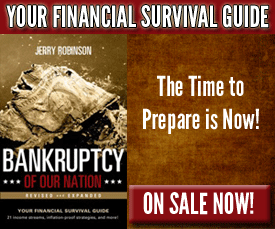
Related Posts

The S&P Roller Coaster – Virtually Zero Returns over Last Two Months
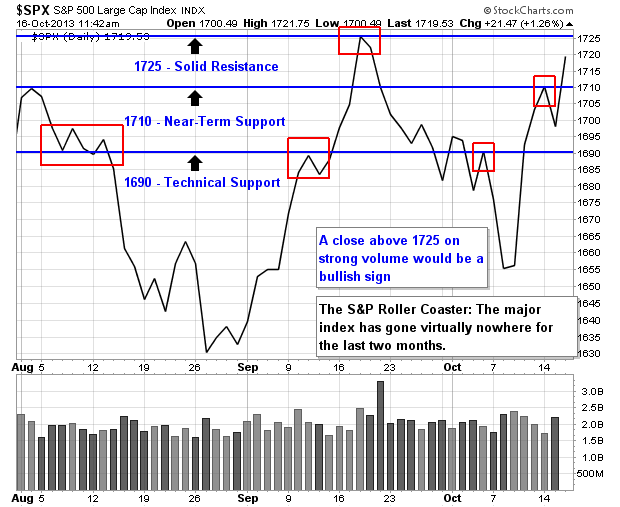

“Even if a deal is patched up soon, you can be fairly sure that the crisis will reappear in some form or other.”
February Treasury Bills are already repricing higher in yield in preparation for the next fight…
The latest survey, conducted this month after the shutdown started, showed 37 out of 46 economists now expecting a Fed pullback on the bond-buying program to begin in December or January.
New plan will give the European Central Bank direct oversight of nearly 130 of Europe’s largest financial institutions by the end of 2014.

Ongoing secret negotiations regulate food, medicine, financial markers, Internet freedom…
“The decision to leave was not an easy one, but I was presented with a once-in-a-career dream journalistic opportunity that no journalist could possibly decline.”
No, NSA surveillance wouldn’t have prevented 9/11 and it hasn’t foiled a single terror plot to date…
Scripture of the Day
“He who tills his land will have plenty of food, but he who follows empty pursuits will have poverty in plenty.”
Proverbs 28:19
